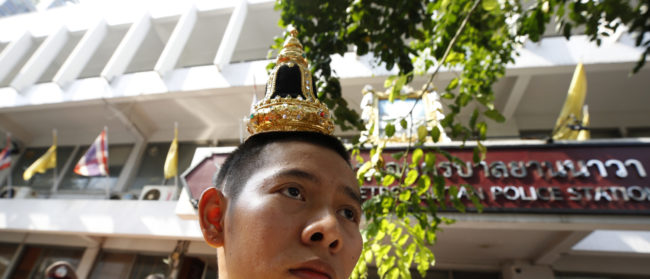Myanmar’s military has detained the country’s de facto leader Aung San Suu Kyi and the country’s president in an apparent coup, a spokesman for her ruling party said Monday.
The dramatic escalation came after weeks of rising tensions between the military, which ruled the country for nearly five decades, and the civilian government over allegations of fraud in November’s elections.
The military last week signalled it could seize power to settle its claims of irregularities in the polls, which Suu Kyi’s National League for Democracy (NLD) party won easily.
Myo Nyunt, the spokesman for the NLD, said Suu Kyi, along with President Win Myint, had been “detained” in the capital Naypyidaw.
“We heard they were taken by the military,” he told AFP, adding that he was extremely worried about the pair.
“With the situation we see happening now, we have to assume that the military is staging a coup.”
Elsewhere, the chief minister of Karen state and several other regional ministers were also held, according to party sources, on the very day when the new parliament was to hold its first session.
Myo Nyunt said it was not clear what would happen to the newly elected MPs.
We call on the military to respect the rule of law, to resolve disputes through lawful mechanisms and to release immediately all civilian leaders and others who have been detained unlawfully
The developments triggered a quick response from Australia, which warned the military is “once again seeking to seize control” of the country.
“We call on the military to respect the rule of law, to resolve disputes through lawful mechanisms and to release immediately all civilian leaders and others who have been detained unlawfully,” Foreign Minister Marise Payne said.
Communications restricted
In the hours after the arrests, communications networks in Myanmar were restricted, with several mobile phone networks down.
NetBlocks, a non-governmental organisation that tracks internet shutdowns, reported severe disruptions to web connections in Myanmar
Phone numbers in the capital Naypyidaw were also seemingly unreachable.
Myanmar’s polls in November were only the second democratic elections the country has seen since it emerged from the 49-year grip of military rule in 2011.
The NLD swept the polls and was expecting to renew the 75-year-old Suu Kyi’s lease on power with a new five-year term.
But the military has for weeks complained the polls were riddled with irregularities, and claimed to have uncovered over 10 million instances of voter fraud.
It has demanded the government-run election commission release voter lists for cross-checking — which the commission has not done.
Last week, the military chief General Min Aung Hlaing — arguably the country’s most powerful individual — said the country’s 2008 constitution could be “revoked” under certain circumstances.
Min Aung Hlaing’s remarks, which came with rumours of a coup already rife, raised tensions further within the country and drew a warning from more than a dozen foreign embassies and the UN.
Myanmar has seen two previous coups since independence from Britain in 1948, one in 1962 and one in 1988.
Suu Kyi — a former democracy icon and Nobel peace prize winner whose image internationally has been in tatters over her handling of the Muslim Rohingya crisis — remains a deeply popular figure.
She spent 20 years off and on under house arrest for her role as an opposition leader, before she was released by the military in 2010.
© Agence France-Presse


